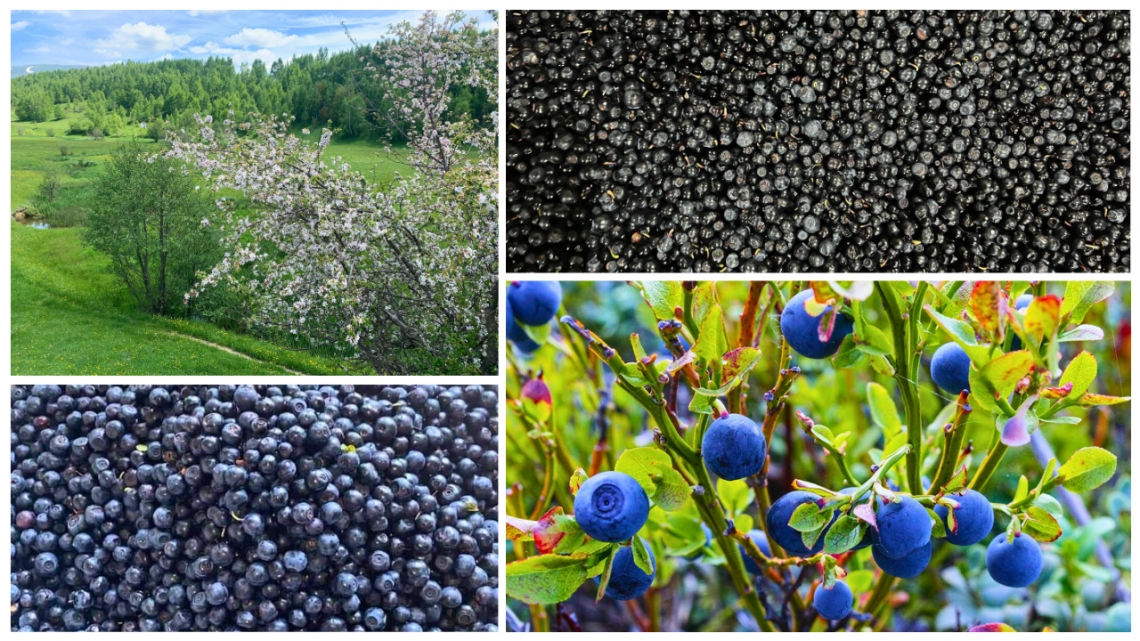News
The Wild Blueberry of Albania – A Natural Treasure for Health and Heritage

High in the mountains of northern Albania, especially in the lush forests and meadows of Tropoja, a small but powerful fruit thrives, the wild blueberry (Vaccinium myrtillus). Known locally as “boronica,” this plant has been part of the region’s nature and traditional medicine for generations. Today, it is also recognised by science for its remarkable health benefits.
A scientific study, led by Professor Zef Gjeta supported by CNVP Albania and Prespa Ohrid Nature Trust, documents the presence and medicinal value of wild blueberries in Albania’s mountain ecosystems. His research highlights not only the fruit’s health benefits but also its role in supporting rural livelihoods through sustainable use in protected areas such as the Albanian Alps and Korab-Koritnik National Parks.
This study focuses on identifying high-value non-timber forest products, such as wild blueberries, and their potential for organic cultivation. These parks are home to rich alpine landscapes, diverse habitats, and rural communities that depend on natural resources for income. Historically, Albania exported large quantities of medicinal and aromatic plants, and today the sector still involves tens of thousands of people, hundreds of plant species, and significant cultivation areas. Protecting and sustainably managing these resources offers economic opportunities while preserving biodiversity.
Wild blueberries are rich in vitamins C, B-complex, and provitamin A, as well as minerals like calcium, magnesium, iron, and manganese. But their true power comes from antioxidants such as anthocyanins, natural compounds that protect blood vessels, improve vision, and reduce inflammation. These same compounds have been linked to better eye health, especially in people with diabetes, and to faster recovery of night vision, a fact first noticed during World War II, when pilots reported sharper sight after eating blueberries.
The fruit and its leaves both offer medicinal value. Blueberries can help regulate blood sugar, protect the stomach lining, and support urinary tract health. They have antibacterial properties and may aid in healing ulcers, boosting immunity, and improving circulation. Traditionally, they have been used to ease digestive problems, strengthen capillaries, and maintain overall vitality, especially in older adults.
In Albania, wild blueberries grow in some of the country’s most beautiful and ecologically important protected areas. These mountain ecosystems are not only rich in biodiversity but also provide livelihoods for local communities through sustainable harvesting. Protecting them means safeguarding both nature and traditional knowledge.
The study of blueberries in Albania is part of the Prespa Ohrid Nature Trust (PONT) project, implemented by CNVP Albania. This initiative works to conserve biodiversity and promote sustainable development in protected areas, ensuring that treasures like the wild blueberry continue to benefit both people and the environment.
Small, dark, and bursting with life, the wild blueberry is a symbol of how nature, culture, and science can work together for a healthier future.
